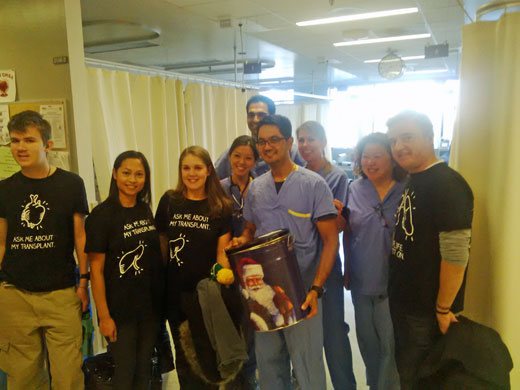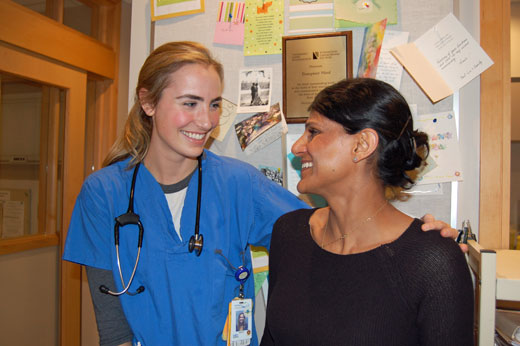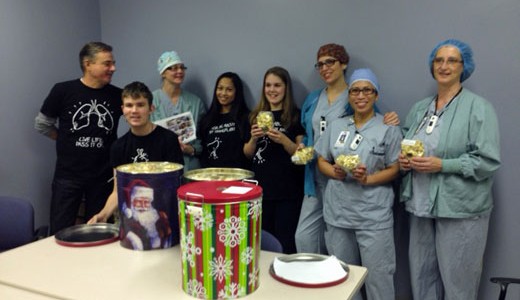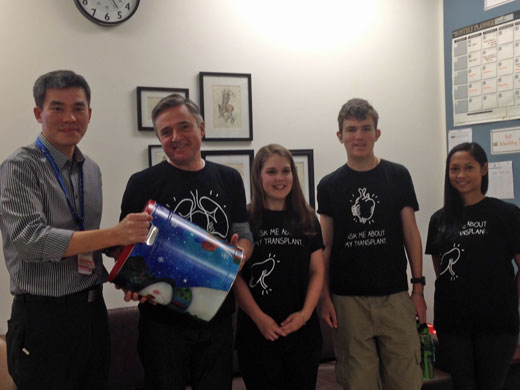Transplant recipients pop in to say thanks
A call goes out, teams are activated and lives are saved. A few words describing a powerful chain of events that link people to services and life to death. While it may sound simple, the complexities of the Solid Organ Transplant Program at VGH and across B.C. are significant. The impact on lives even more so.

Operation Popcorn visits CSICU staff (l to r): Jessica Mah, Arvinder Khaira, Gurdip Bhatti, Patricia Bell and Tina Lam.
On December 1, transplant recipients made a surprise visit to VGH . Their mission, dubbed Operation Popcorn, was to thank staff for the greatest gift of all — life.
During BC Transplant’s (BCT) annual Operation Popcorn, organ transplant recipients deliver decorative tins of popcorn to donor hospitals. At VGH, recipients visited our Emergency Department, Intensive Care Unit (ICU), Cardiac Sciences ICU, and the Operating Rooms, where staff see the tragic side of organ donation and support families dealing with the loss of a loved one.
Living proof on the unit

Amy Myring (left) and Kulwinder Sangha of the Solid Organ Transplant unit say success depends on teamwork across the system.
While the focus of Operation Popcorn is on ICUs, EDs and ORs, the effort behind organ transplants involves many other departments, including Patient Flow & Access, Medical Imaging, Laboratory & Immunology and, of course, the Solid Organ Transplant (SOT) unit at VGH.
“Everything needs to come together quickly,” says Kulwinder Sangha, SOT patient care coordinator and clinical nurse educator. “We need to work together as a team, across all areas of the system, to make sure everything works smoothly.”
“It’s pretty bing, bang, boom, adds Amy Myring, RN. “It’s not uncommon to do multiple transplants in one day, sometimes as many as eight.”
For recipients, the welcome news can lead to mixed emotions, “a combination of nerves, excitement and feelings of guilt,” says Amy. “Education is a big part of the process and helps to calm patients and prepare them for the journey ahead.”
A new lease on life
Kulwinder and Amy have witnessed it numerous times. A patient, once with little hope, wheels into surgery, and walks out the hospital with a new lease on life.
“When we take a patient from the Palliative Care Unit or Hospice and give them a second chance, it’s pretty amazing,” says Kulwinder. “It can be very emotional, too. Sometimes we don’t even recognize them when they return to visit us. The change can be so incredible.”
For some patients, their life opens up with the ability to do new activities – even something as simple as eating sugar, in the case of pancreas transplants.
Transformations such as these make working in the SOT unit so gratifying for Kulwinder and Amy. They both spent time on the unit as RN students and, in a way, they’ve never looked back.


